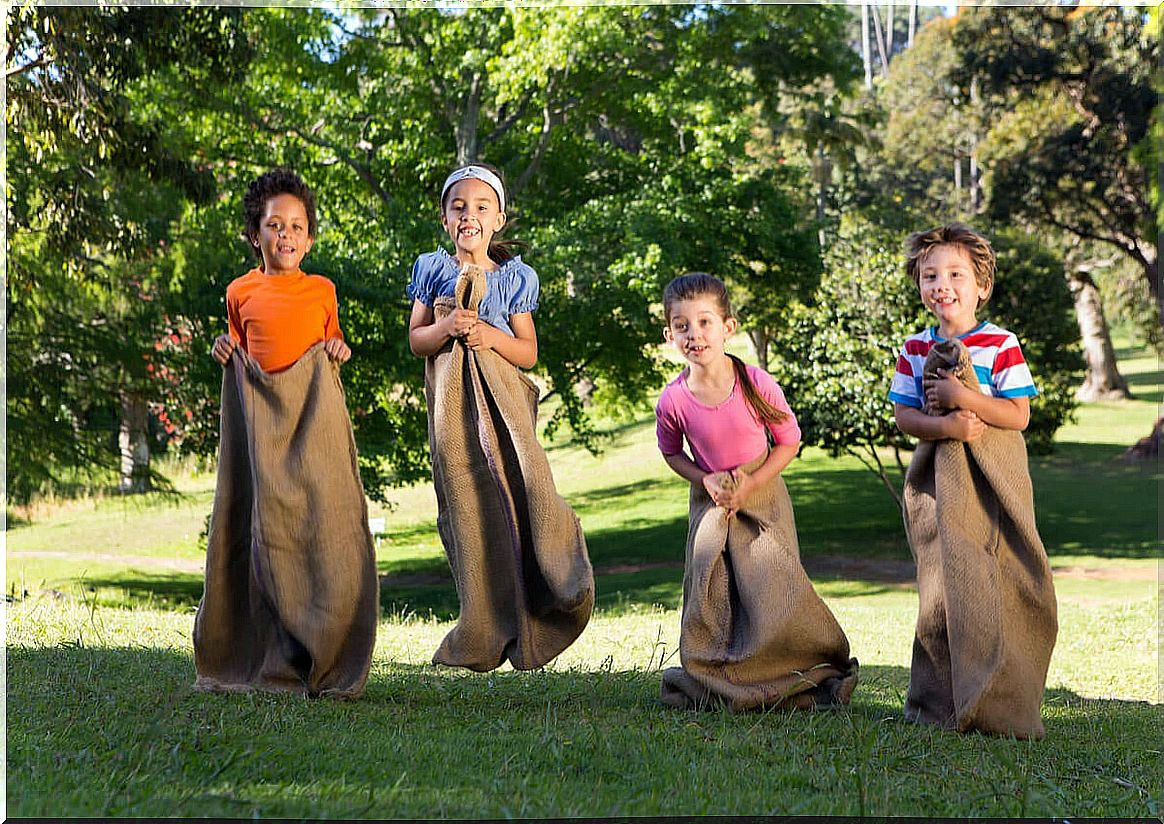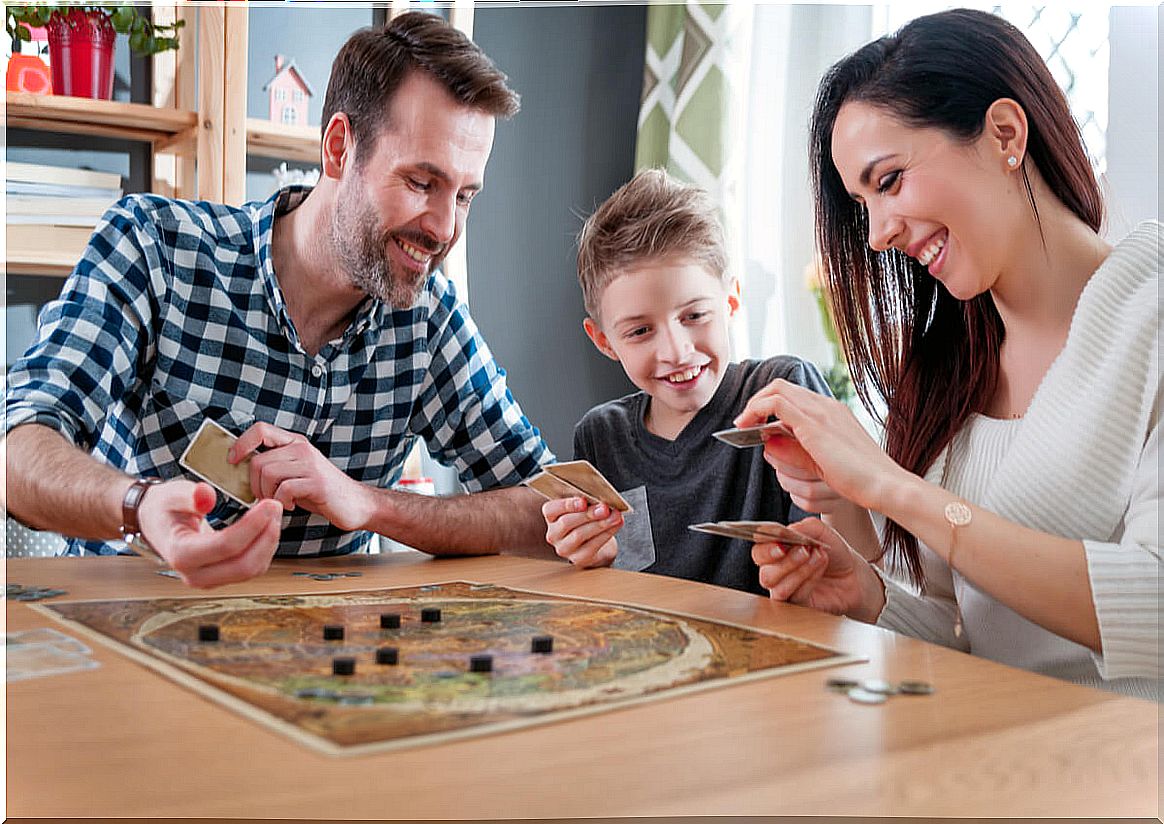5 Games For Children Without Using Technology
Games for children are usually passed down from generation to generation. In some places the name or the rules may change, but they tend to stick over time.
There are different traditional games that are easy to learn. There is no need to spend a large amount of money or play them on specific sites. In addition, they develop in the child the ability to reason, logic, balance and put their senses to the limit.
Benefits of games for children

Playful activities are essential in the lives of children. Through these, the little ones begin to establish contact with the world. It is the natural tool with which they express their feelings of anger, fear, sadness or joy. We present to you what are the benefits of games for children:
They develop cognitive and motor skills
There are games for children that help develop their cognitive abilities. This is indicated by research such as that carried out by a team from the University of San Agustín de Arequipa. For example, activities that teach you how to solve problems and imagine situations and solutions stimulate your abstract thinking and level of concentration.
Most of these activities are inclusive and global. For this reason, the functioning of the whole body is involved.
Games like hide and seek keep the child in a state of alert. They also help the little one develop sensitivity to perceptions and strengthen their motor control.
Boosts self-esteem
Through games, the child begins to discover new things that will help him throughout his life. Among them, the way of relating and how relationships work, since the game encourages meeting with others, whom the child calls friends.
Playful activities allow the child to get to know each other and discover their strengths and weaknesses. They also allow you to identify your feelings and likes.
Link the family
As a parent, it is normal for you to complain because your child does not obey you. However, what you do not know is that one of the factors of disobedience may be the little time you spend on it. It is very difficult to discipline your child or negotiate rules with him if you do not know him.
Accompanying your child in his games is important, since it is one of the activities that allows you both to get to know each other. In addition, when you get down to his level, the child feels that you understand him and bonds and closeness are established.
5 games for kids that every parent should teach
Children play almost everywhere and in all situations. The game not only amuses them and makes them happy, but it is a biological necessity, therefore, it is part of their integral development. Some playful activities that the child can practice are:
The blind chicken
This is a very simple game. Helps children understand the importance of the senses as it is played blindfolded. In this way, children learn to move with greater confidence and agility. It is important that you explain to your child how to play it:
- The first thing to do is choose the person who will be blindfolded and will count. That will be “the blind chicken.”
- When the child is blindfolded, he will roll three times. At the same time, the others form a circle around him holding hands.
- The task of “the chicken” is to catch one of the children. Children can move without letting go of hands. When the child catches another, he must guess who it is by touch. If he guesses right, the roles are swapped.
To make the game more joyful, the children can sing. This verse is very common during the game: “Little chicken, little chicken, what have you lost in the haystack? A needle and a thimble. Go around three times and you will find it. “
Table games
These games are ideal for those rainy days, when your child does not go outside to play. They are games for children that help develop different aspects of their personality. For example, concentration, patience, the capacity for deduction and logic.
There are different types of table games, depending on the ages. Each helps develop different capacities and motivate different interests in the child. For example, dominoes or chess are ideal for:
- Stimulate the autonomy of the child.
- Develop strategies.
- Take decisions.
On the other hand, memory games or puzzles are great. Your child will be able to practice his memory and deduction. Although many of these are recreational, there are also games that combine fun with education.
Scrabble , for example, helps the child learn vocabulary. With World Tourist they learn geography and with Pictionary they put their creativity into practice.

Mime
These mime games help children:
- Express feelings.
- Control your body movements in a creative way.
- They have children connect gestures with actions and words.
- Improve your child’s concentration, as he must think about what gestures he is going to represent without speaking.
- It encourages their imagination and creativity when recreating situations.
- It generates interaction with other children, since it is usually done in groups.
- It helps to release stress through laughter and is an ideal practice for all ages.
Hideout
Hide and seek is a perfect game for your child to make contact with nature. You do not need any materials, you just have to let your imagination run wild.
The purpose of the game is for one of the children to count and the others to hide until they are discovered. To play, your child should follow the following recommendations:
- First, the children must decide who will count and up to what number. This child will be in charge of finding the others in their hiding place.
- While it counts, the others must hide. Once you are done, you should say out loud “I’m coming” and go out to find the others.
- When you find a person you must touch him and continue searching.
- To win the game, the children must run to where the counting is and touch the site.
Hide and seek is a game that awakens a sense of adventure and curiosity. A variant is that the child who is looking should not touch whoever he finds, but return to the place where he was counting, touch him and say the name of the person.
Traditional games for children
Traditional games for children are a great option for their entertainment. In addition, they help their learning and physical development. Games help them to feel accompanied and, at the same time, they learn to socialize.
There are a wide variety of options for your child to play, have fun and learn. Playing outdoors or even concentrating on some playful activity, they release stress and develop cognitive and physical skills that will help you in the future.









